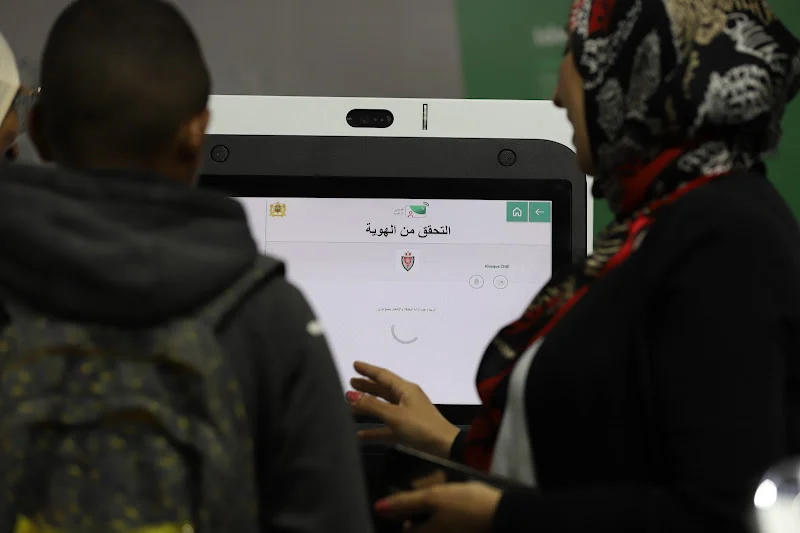Ethics & Policy
PM Paetongtarn Backs Human-Centric AI, AIGPC Emerges as Regional AI Ethics Hub — TradingView News

BANGKOK, THAILAND, July 1, 2025 – (ACN Newswire) – Thailand has successfully concluded the 3rd UNESCO Global Forum on the Ethics of Artificial Intelligence (GFEAI 2025), held from 24-27 June at Centara Grand, Bangkok. With over 1,000 participants from more than 100 countries, the forum served as a key platform for global dialogue on responsible, inclusive, and human-centric AI development.
Prime Minister Paetongtarn Shinawatra opened the forum and presented the government’s vision of “AI for Every Human”, focused on using AI to enhance quality of life across sectors such as agriculture, healthcare, and education, while addressing digital threats through literacy and protection. PM announced a landmark investment of USD 15.4 billion in AI, aiming to drive at least THB 4 billion in economic value by 2027.
A central highlight was the launch of the AI Governance Practice Center (AIGPC) the first in Asia-Pacific set to become a regional hub for AI ethics, with support toward UNESCO Category 2 Centre status.
Deputy Prime Minister and Minister of Digital Economy and Society H.E. Mr. Prasert reaffirmed Thailand’s commitment to AI that aligns with ethical principles and national priorities. The government targets 90,000 trained AI specialists, 50,000 developers, and outreach to over 10 million users, under the National AI Strategy.
Discussions also advanced the Global Network of AI Supervising Authorities (GNAIS), aiming to create global codes of conduct rooted in human rights and inclusivity. Thailand’s leadership in AI governance was further reinforced through bilateral engagements, including with Indonesia (AI ethics), Malaysia (smart cities and digital gaming), and India, focusing on expert exchange and project development.
Thailand also endorsed UNESCO’s Readiness Assessment Methodology (RAM) as a tool to guide AI policy, regulation, workforce development, and open data practices across ASEAN. A key milestone was the tripartite MoU between ETDA, NECTEC, and DataDotOrg to develop 10,000 AI/data professionals and create a sustainable AI education ecosystem.
Youth engagement was prominent, with over 200 Thai students participating in the “AI for Children” session. Citing UNICEF data, Thailand launched initiatives such as the Digital Vaccine powered by DQ, YDCD, and Digitally Ready, aiming to build AI-ready schools in over 10 countries by 2026.
GFEAI 2025 marked a pivotal milestone in positioning Thailand as a strategic and ethical leader in AI-both in Southeast Asia and globally. The forum underscored Thailand’s readiness to take an active role in shaping international AI governance, while laying the groundwork for a responsible, inclusive, and sustainable digital future. For continued updates and highlights from GFEAI 2025, please visit ETDA Thailand’s official website.
Source: Electronic Transactions Development Agency (ETDA Thailand)
Copyright 2025 ACN Newswire . All rights reserved.
Ethics & Policy
Vatican Hosts Historic “Grace for the World” Concert and AI Ethics Summit | Ukraine news

Crowds gather in St. Peter’s Square for the concert ‘Grace for the World,’ co-directed by Andrea Bocelli and Pharrell Williams, as part of the World Meeting on Human Fraternity aimed at promoting unity, in the Vatican, September 13, 2025. REUTERS/Ciro De Luca
According to CNN CNN
In the Vatican, a historic concert titled “Grace for the World” took place, which for the first time brought together world pop stars on St. Peter’s Square. The event featured John Legend, Teddy Swims, Karol G, and other stars, and the broadcast was provided by CNN and ABC News. The concert occurred as part of the Third World Meeting on Human Fraternity and was open to everyone.
During the event, performances spanning various genres graced the stage. Among the participants were Thai rapper Bambam from GOT7, Black Eyed Peas frontman Will.i.am, and American singer Pharrell Williams. Between performances, Vatican cardinals addressed the audience with calls to remain humane and to uphold mutual respect among people.
Key Moments of the Event
“to remain humane”
Within the framework of the Third World Meeting on Human Fraternity in the Vatican, the topic of artificial intelligence and ethical regulation of its use was also discussed. The summit participants emphasized the need to establish international norms and governance systems for artificial intelligence to ensure the safety of societies. Leading experts joined the discussion: Geoffrey Hinton, known as the “godfather of artificial intelligence,” Max Tegmark from the Massachusetts Institute of Technology, Khimena Sofia Viveros Alvarez, and Marco Trombetti, founder of Translated. Pope Leo XIV also participated in the discussion and reaffirmed the position of the previous pope regarding the establishment of a single agreement on the use of artificial intelligence.
“to define local and international pathways for developing new forms of social charity and to see the image of God in the poor, refugees, and even adversaries.”
They also discussed the risk of the digital divide between countries with access to AI and those without such access. Participants urged concrete local and international initiatives aimed at developing new forms of social philanthropy and supporting the most vulnerable segments of the population.
Other topics you might like:
Ethics & Policy
Pet Dog Joins Google’s Gemini AI Retro Photo Trend! Internet Can’t Get Enough | Viral Video | Viral

Beautiful retro pictures of people in breathtaking ethics in front of an esthetically pleasing wall under the golden hour is currently what is going on on social media! All in all, a new trend is in the ‘internet town’ and it’s spreading- fast. For those not aware, it’s basically a trend where netizens are using Google’s Gemini AI to create a rather beautiful retro version of themselves. In a nutshell, social media is currently full of such pictures. However, when this PET DOG joined the bandwagon, many instantly declared the furry one the winner- and for obvious reasons. The video showed the trend being used on the pet dog- the result of which was simply heartwarming. The AI generated pictures showed the cute one draped in multiple dupattas, with ears that looked like the perfect hairstyle one can ask for- for their pets. Most netizens loved the video, while some expressed their desire to try the same on their pets. Times Now could not confirm the authenticity of the post. Image Source: Jinnie Bhatt/ Instagram
Ethics & Policy
Morocco Signs Deal to Build National Responsible AI Platform

Morocco’s Ministry of Digital Transition and Administrative Reform signed an agreement Thursday with the National Commission for the Control of Personal Data Protection (CNDP) to develop a national platform for responsible artificial intelligence.
The deal, signed in Rabat by Minister Delegate Amale Falah and CNDP President Omar Seghrouchni, will guide the design of large language models tailored to Morocco’s language, culture, legal framework, and digital identity.
Officials said the initiative will provide citizens, businesses, and government agencies with safe generative AI tools that protect fundamental rights. The ministry called the agreement a “strategic step” toward AI sovereignty, ethics, and responsibility, positioning Morocco as a digital leader in Africa and globally.
-

 Business2 weeks ago
Business2 weeks agoThe Guardian view on Trump and the Fed: independence is no substitute for accountability | Editorial
-
Tools & Platforms1 month ago
Building Trust in Military AI Starts with Opening the Black Box – War on the Rocks
-

 Ethics & Policy2 months ago
Ethics & Policy2 months agoSDAIA Supports Saudi Arabia’s Leadership in Shaping Global AI Ethics, Policy, and Research – وكالة الأنباء السعودية
-

 Events & Conferences4 months ago
Events & Conferences4 months agoJourney to 1000 models: Scaling Instagram’s recommendation system
-

 Jobs & Careers2 months ago
Jobs & Careers2 months agoMumbai-based Perplexity Alternative Has 60k+ Users Without Funding
-

 Podcasts & Talks2 months ago
Podcasts & Talks2 months agoHappy 4th of July! 🎆 Made with Veo 3 in Gemini
-

 Education2 months ago
Education2 months agoMacron says UK and France have duty to tackle illegal migration ‘with humanity, solidarity and firmness’ – UK politics live | Politics
-

 Education2 months ago
Education2 months agoVEX Robotics launches AI-powered classroom robotics system
-

 Podcasts & Talks2 months ago
Podcasts & Talks2 months agoOpenAI 🤝 @teamganassi
-

 Funding & Business2 months ago
Funding & Business2 months agoKayak and Expedia race to build AI travel agents that turn social posts into itineraries

